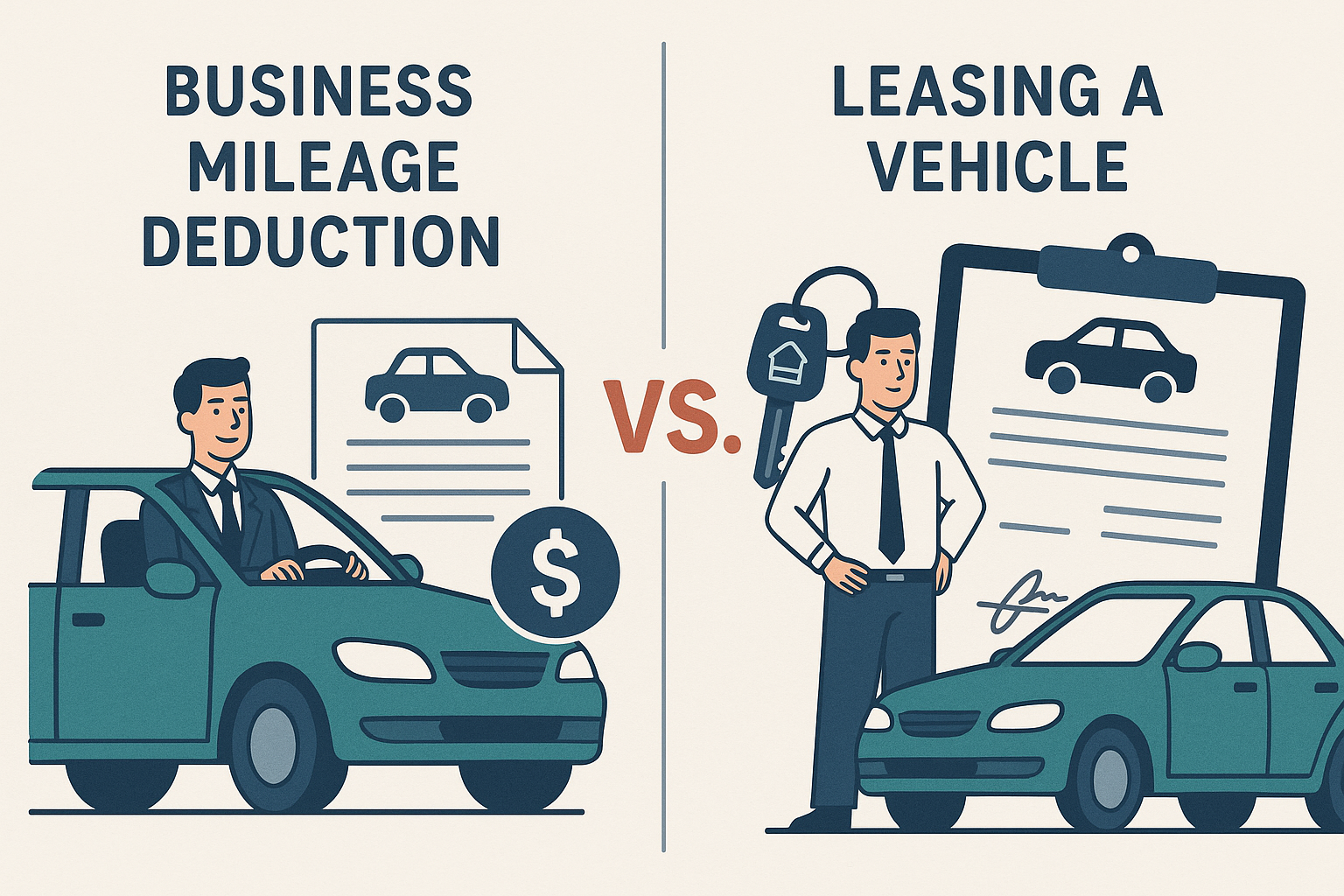Should You Track Mileage or Lease a Vehicle for Business?
Choosing between using your personal car for business with mileage tracking or leasing a vehicle for your business comes with different tax implications. Understanding these options can help you make the right financial decision.
Using a Personal Vehicle with Mileage Tracking:
- What It Is: You use your personal car for business trips and track the miles driven for business purposes.
- How the Tax Deduction Works: You can deduct a set rate per business mile driven. For 2025, the IRS standard mileage rate is 67 cents per mile (subject to annual updates).
- What’s Included: The standard mileage rate covers fuel, maintenance, depreciation, insurance and registration.
- Important Rule: Commutes from your home to your office or a regular place of business do not count as business miles. Mileage tracking starts from your business location. However, if you have a qualified home office, you can begin counting miles from your home.
- Recordkeeping: Keep a detailed log of the date, destination, purpose and miles for each business trip. Apps or spreadsheets work well.
- Pros:
- Simple to track if you use your car for both business and personal use.
- No need to track actual expenses for the car.
- Works well for small businesses or side gigs with lower business mileage.
- Cons:
- May result in a smaller deduction if you drive many business miles or have high vehicle expenses.
Example:If you drive 5,000 business miles in a year at 67 cents per mile, you could deduct $3,350 from your taxable business income.
Leasing a Vehicle for Business:
- What It Is: The business leases a vehicle and uses it primarily for business purposes.
- How the Tax Deduction Works:
- Lease payments can be deducted based on the percentage of business use.
- You can also deduct actual costs like fuel, maintenance, insurance and repairs.
- Some vehicles may have a lease inclusion amount that reduces the deduction for luxury vehicles.
- Recordkeeping: Track total miles driven and business miles to determine the business-use percentage.
- Pros:
- Often provides a larger deduction if the vehicle is used mostly for business.
- Business pays for and deducts the lease payments directly.
- May include newer vehicles with fewer repair costs.
- Cons:
- More complex recordkeeping.
- Committing to a lease may be less flexible.
- Business-use percentage must be accurate.
-
Example:If you lease a vehicle for $600 per month and use it 90% for business, you can deduct $6,480 of lease payments for the year (90% of $7,200). You can also deduct fuel and maintenance for the business use portion.
Which Option Is Better?
- Mileage Tracking Works Well If:
- You use your personal car for occasional business travel.
- You want simpler bookkeeping.
- Leasing May Be Better If:
- You need a dedicated business vehicle.
- Your business use is high, and the expenses outweigh the mileage deduction.
Final Thought:
Both options can lead to significant tax savings, but the right choice depends on your business usage, vehicle costs and personal preference. In addition, if your business purchases a vehicle that weighs more than 6,000 pounds (like certain trucks and SUVs), you may qualify for a 100% deduction of the vehicle’s cost in the first year under bonus depreciation rules.
